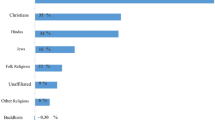Abstract
The Guantanamo detention facility, from its early days an emblem for human rights abuses, is a space where legal subjectivity of detainees is contested or even permanently suspended. This essay argues that we should look for the underlying rationale for this treatment not in the politicians who pursue intelligence, security, and strategic interest, or indeed even revenge for 9/11, but rather in the logic—or the ontology—that drives the present political and legal system. This is not to say, of course, that politicians play no role, or that they are mere ‘victims’ of social and political power relations—far from it; yet, it has to be acknowledged that the foundational assumptions on which the existing system operates create conditions of possibility for such degrading actions and exclusionary politics. This paper will first explore these philosophical foundations that enable such an understanding of exclusionary legal subjectivity as we see practiced in Guantanamo, amongst other places; secondly, it will search for an alternative logic of legal subjectivity as a ‘foundation’ for rights. Gilles Deleuze’s notion of ‘becoming’ as a potentially facilitative practice for an ‘open’ notion of legal subjectivity, as well as Alain Badiou’s account of ethics and evil, which points to a more ‘inclusive’ yet ‘situational’ understanding of human rights, will prove particularly useful here.
Similar content being viewed by others
Notes
See also Hannah Arendt, The Origins of Totalitarianism (Berlin: Schocken Books, 2004).
‘Bob’ is a name commonly used when referring to all Guantanamo detainees; it is meant to de-personalise or de-subjectivise the detainee.
References
Agamben, Giorgio. 2000. Means without ends: Notes on politics. London, Minneapolis: University of Minnesota Press.
Agamben, Giorgio. 2005. State of exception. Chicago and London: University of Chicago Press.
Al-Harith, Jamal. 2004. The lawfulness of detentions by the United States in Guantanamo Bay, Committee on Legal Affairs and Human Rights of the Council of European Parliamentary Assembly, Paris, December 17 2004.
Alliez, Eric. 2004. The signature of the world, or, what is Deleuze and Guattari’s philosophy? New York and London: Continuum.
Badiou, Alain. 2002. Ethics: An essay on the understanding of evil. London, New York: Verso.
Badiou, Alain. 2003. Saint Paul: The foundations of universalism. Stanford: Stanford University Press.
Chiesa, Lorenzo. 2007. Subjectivity and otherness: A philosophical reading of Lacan. Cambridge, MA and London: The MIT Press.
Deleuze, Gilles, and Felix Guattari. 1992. Expression in philosophy: Spinoza. New York: Zone Books.
Deleuze, Gilles, and Felix Guattari. 2007. Anti-oedipus: Capitalism and schizophrenia. London, New York: Continuum.
Deleuze, Gilles, and Felix Guattari. 2008. A thousand plateaus: Capitalism and schizophrenia. London, New York: Continuum.
Douzinas, Costas. 2000. The end of human rights: Critical legal thought at the turn of the century. London: Hart Publishing.
Haynes, William. 2002. ‘Enemy Combatant’, council of foreign relations. http://www.cfr.org/publication.html?id=5312. Accessed 12 December 2002.
Howell, Alison. 2007. Victims or Madmen? The diagnostic competition over ‘Terrorist’ detainees in Guantanamo Bay. International Political Sociology 1: 1.
Kurnaz, Murat. 2008. Five years of my life: An innocent man in Guantanamo. New York: Pelgrave Macmillan.
Lacan, Jacques. 2008. Seminar VII: The ethics of psychoanalysis. London: Routledge.
Miller, Flagg. 2007. Forms of suffering in Muslim prison poetry, a preface. In Poems from Guantanamo: A detainee speaks, ed. Mark Falkoff, 7–16. Iowa City: University of Iowa Press.
Negri, Antonio. 2008. The savage anomaly: The power of Spinoza’s metaphysics and politics. Minneapolis: University of Minnesota Press.
Patton, Paul. 2010. Becoming-animal and pure life in Coetzee’s Disgrace. http://ariel.synergiesprairies.ca/ariel/index.php/ariel/article/viewFile/3891/3828. Accessed 14 September 2010.
Rumsfeld, Donald. Defense Secretary. Speech on 27 January 2002.
Seem, Mark. 2007. Introduction. In Anti-Oedipus: Capitalism and schizophrenia, ed. Gilles Deleuze and Felix Guattari, i–xxvi. London, New York: Continuum.
Stafford Smith, Clive. 2007. Bad men: Guantanamo Bay and the secret prison. London: Weidenfeld & Nicolson.
Yee, James. 2005. For God and country: Faith and patriotism under fire. New York: Public Affairs Books.
Zizek, Slavoj. 1999. The sublime object of ideology. London, New York: Verso.
Author information
Authors and Affiliations
Corresponding author
Rights and permissions
About this article
Cite this article
Zevnik, A. Becoming-Animal, Becoming-Detainee: Encountering Human Rights Discourse in Guantanamo. Law Critique 22, 155–169 (2011). https://doi.org/10.1007/s10978-011-9087-0
Published:
Issue Date:
DOI: https://doi.org/10.1007/s10978-011-9087-0




